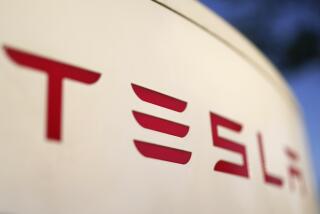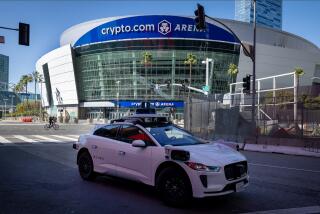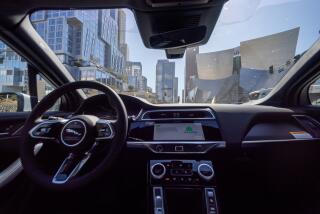Waymo executive claims his driverless technology would have seen the pedestrian killed by an Uber car
Waymo Chief Executive Officer John Krafcik said his company’s self-driving software would likely have avoided the pedestrian death in which an Uber autonomous car was involved.
“We have a lot of confidence that our technology would be robust and would be able to handle situations like that one,” Krafcik said Saturday in a speech to car dealers, in his first public comments since a pedestrian was killed by an Uber self-driving vehicle March 18.
The fatal incident in Tempe, Ariz., has rattled the industry and prompted lawmaker scrutiny. Alphabet Inc.’s Waymo, the former Google car project, is considered the technical leader in the field. Waymo began ferrying passengers in Arizona last year, without safety drivers behind the wheel, and is planning a paid robo-taxi service this year.
Meanwhile, a top executive for the maker of sensors used on the self-driving Uber car said she was “baffled” as to why the tech-outfitted vehicle failed to recognize a pedestrian crossing the street and hit the brakes.
Marta Thoma Hall, president of Velodyne Lidar Inc., maker of the special laser radar that helps an autonomous car “see” its surroundings, said the company doesn’t believe its technology failed. But she’s surprised the car didn’t detect 49-year-old Elaine Herzberg as she pushed her bike across a road around 10 p.m.
“Certainly, our Lidar is capable of clearly imaging Elaine and her bicycle in this situation,” Thoma Hall wrote in an email. “However, our Lidar doesn’t make the decision to put on the brakes or get out of her way.
“In addition to Lidar, autonomous systems typically have several sensors, including camera and radar to make decisions,” she wrote. “We don’t know what sensors were on the Uber car that evening, if they were working, or how they were being used.”
She said that lidar has no problems seeing in the dark. “However, it is up to the rest of the system to interpret and use the data to make decisions. We do not know how the Uber system of decision-making works,” she added.
Uber Technologies Inc. halted its testing program Monday. Other companies followed suit. Waymo declined to say if it was changing its plans, but kept vehicles on the road in Arizona.
Uber’s fatal crash immediately sparked a series of questions, long debated by the nascent driverless car industry. Some states, particularly Arizona, have embraced the tech, permitting companies to test without backup drivers behind the wheel. Still, regulators nationwide have yet to settle on issues of liability and standard safeguards. California demands companies testing these cars disclose how many times humans must take over the systems — a rare requirement that sent some firms to other states with less-stringent regulation.
Experts who saw video of the Uber crash pointed to apparent failures in Uber’s sensor system, which failed to stop or slow the car as Herzberg crossed a street pushing a bicycle. Tempe police and the National Transportation Safety Board are investigating the collision. Ten U.S. senators Friday released a letter to companies testing autonomous cars asking them to remove provisions that prevent consumers from suing.
“For those of us at Waymo, it was a very sad day,” Krafcik said during the speech at the National Automobile Dealers Assn. conference in Las Vegas on Saturday. “It is that vision of safety and avoiding accidents just like that one that really bring us all together as a company.”
Waymo has been testing cars in 25 cities, although it is shuttling passengers in Phoenix. It plans to introduce that service in a second city this year, Krafcik said. The former automotive executive also told the dealer audience the tech giant is working to make personal car ownership work with self-driving.
Krafcik played a video of Waymo’s test program in Phoenix. “This is a little bit of what the future looks like,” he said. “I don’t know how you feel about that, but there’s no one in the driver’s seat.”
In 2017, Waymo opened a bitter lawsuit against Uber for allegedly stealing self-driving sensor designs. The companies settled in February with Waymo taking $245 million in Uber equity.






